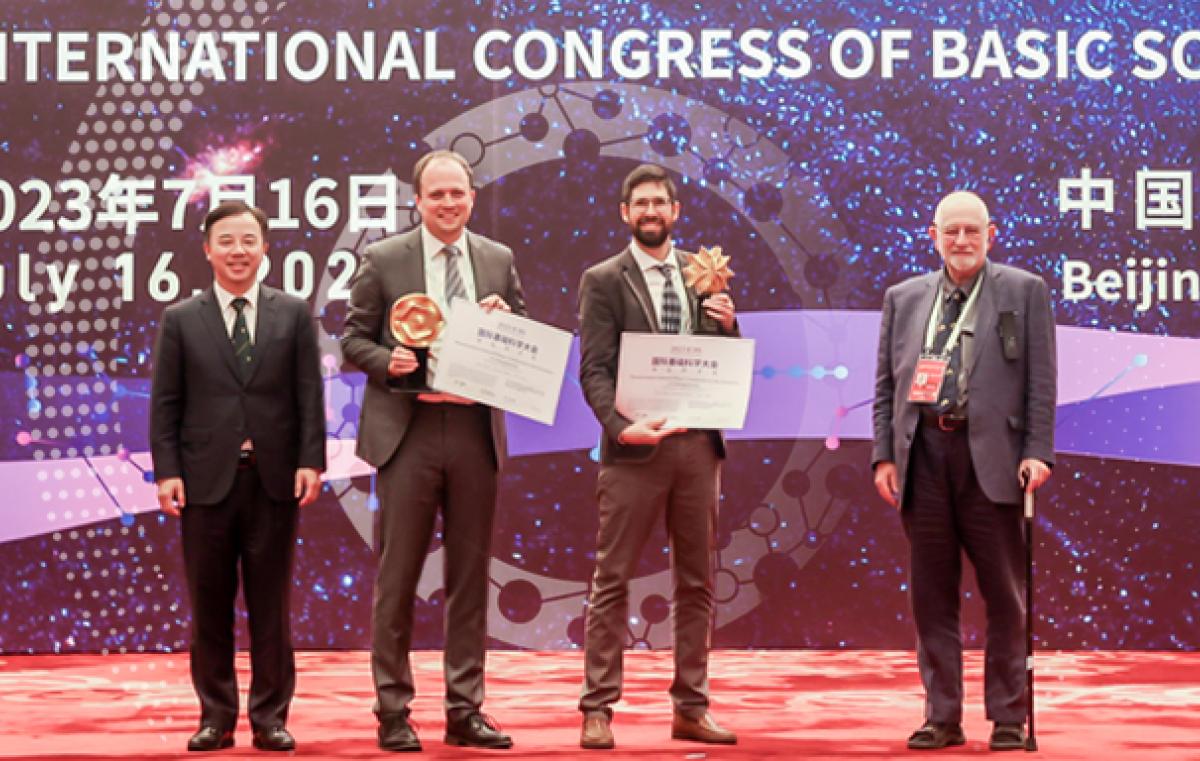Prestigious “Frontiers of Science" Award Granted to Prof. Jonathan Ruhman & Collaborators
Prof. Ruhman of BIU’s Department of Physics receives award in recognition of his research on quantum phenomena in many-body systems

Congratulations to Prof. Jonathan Ruhman of the Department of Physics at Bar-Ilan University for winning the prestigious “Frontiers of Science” award for 2018-2022. The award, granted at the International Congress for Basic Science in China, ranks the best research papers published in the last five years in the fields of theoretical physics, computer science and mathematics.
Prof Ruhman is a theoretician who studies quantum phenomena in many-body systems, known as condensed matter physics. "This field covers quantum liquids, solids and everything in between," he explains, "An excellent example of a quantum liquid is a superconductor: When certain metals are cooled below a critical temperature they become 'perfect' (resistance-free). This phenomenon occurs in a large entity that can be perceived by a naked eye or held in your hand." Prof. Ruhman says the prize was awarded for investigating a phenomenon called entanglement, which is a bizarre quantum effect that may occur in such systems. "If two quantum entities are entangled it implies that measuring one influences the other” says Ruhman. “We showed there exists a critical threshold for the destruction of entanglement in quantum systems that are coupled to an external monitoring device. When entanglement is destroyed the system becomes essentially classical. Thus, understanding this threshold might help understand the boundaries between quantum classical behavior."
Last year Prof. Ruhman won the Krill Prize for Excellence in Scientific Research from the Wolf Foundation - 2022, for his original work in explaining quantum phenomena in solid matter, which has important implications on the areas of superconductors and quantum entanglement in multi-particle systems.
Prof. Ruhman holds a BSc from the Hebrew University, and a MSc and PhD from the Weizmann Institute. He was a postdoctoral fellow at the Massachusetts Institute of Technology (MIT).